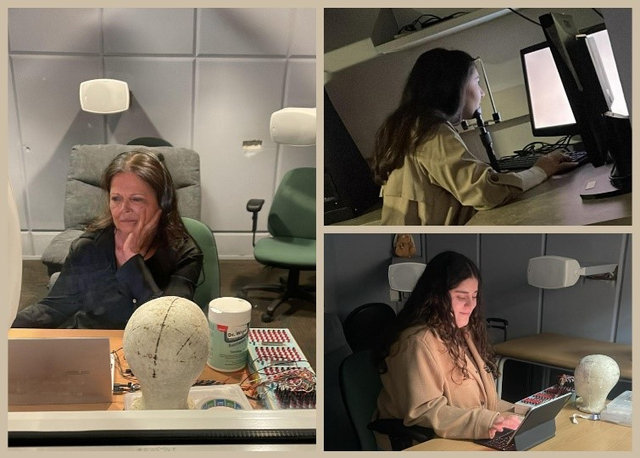Age-related sensory declines in auditory and visual modalities

Previous studies have found that older adults are highly associated with decreased function in vision, audition, and cognition, raising the possibility of shared characteristics in how these functions decline as we age. However, these functions have been studied in different individuals and not within the same design, thus, it is unclear whether declines in vision are similar to declines in audition or whether they are related within individuals. Furthermore, the link between these sensory declines and cognitive decline is unclear. Therefore, the aim of this study is to shed light on how aging influences everyday functioning in older adults by examining sensory declines in the same individuals. It seeks to explain the underlying mechanisms of sensory degradation with age and to lay a theoretical basis for the sensory-cognitive link in aging.
40 healthy young adults (18-30 years old) and 40 healthy older adults (50-70 years old) completed psychophysical tasks in audition (frequency discrimination, speech-in-noise word discrimination, and speech-in-noise sentence recognition), vision (motion direction discrimination, spatial frequency discrimination, and contrast threshold discrimination) and cognition (attention, working memory, speed of processing).
A strong correlation between auditory and visual thresholds was observed across older adults; the extent of the auditory decline was related to the extent of visual decline, suggesting a domain-general decline in perception. Results from the older adults’ group demonstrated that sensory-perceptual performance monotonically decreases each year. Young adults consistently outperformed older adults in both modalities and in cognitive tasks. Working memory was found to be a predictor of sensory-perceptual performance regardless of modality type and age.
Our findings support the hypothesis of a domain-general decline that impacts audition, vision, and cognition. These findings lay the groundwork for future translational research focused on enhancing cognitive and sensory-perceptual abilities in older adults. For instance, interventions targeting both cognitive and sensory-perceptual processes could prove more effective than those focusing solely on one of these processes.
